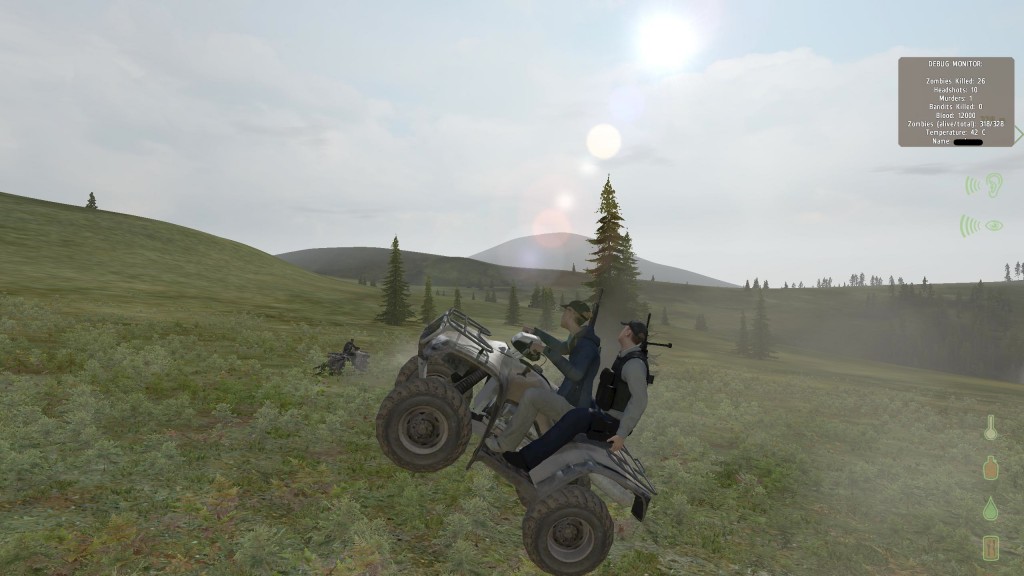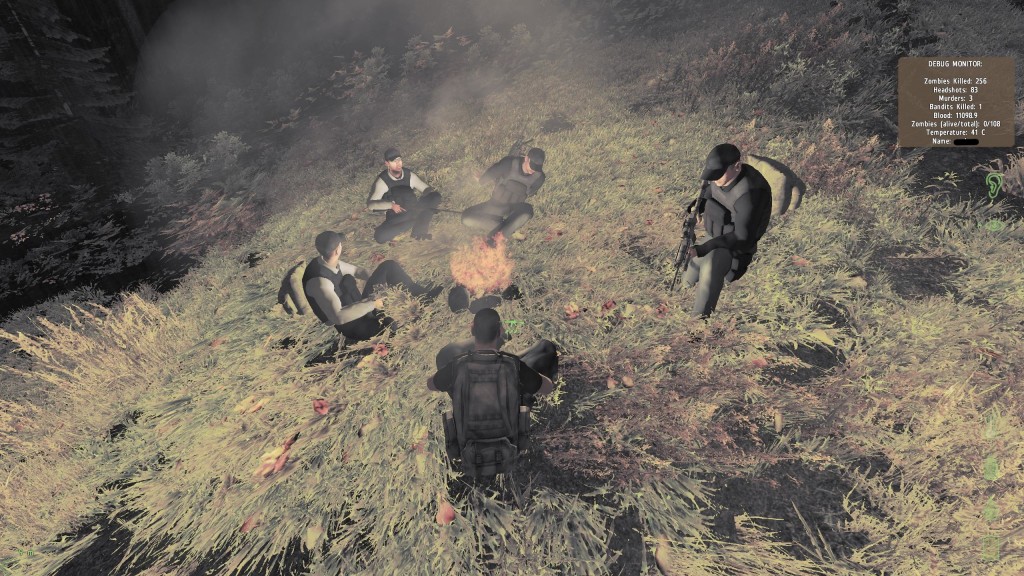
Emergent gameplay
There’s a lot being said on the internet about the so-called “emergent gameplay” being offered by what seems like one of the most popular zombie apocalypse mods since zombie apocalypse games were even a thing. What everyone is saying is that DayZ provides a gameplay experience like no other; because there are no clear goals per se, it’s up to players to figure out what to do with their time in Chernarus.
Players start on what has been affectionately named “the bean coast” (however inaccurate that name might be, seeing as the current version of DayZ sees you spawning with nothing but a bandage, a flashlight, and a box of painkillers to your name) by more experienced players, and from there, it’s totally up to the player as to what they do. Do players try and seek their survival in one of the larger coastal towns, fully aware that other players will also be lurking there? Or do more experienced players head north from the moment they spawn, knowing full well that their chances of survival are much greater when every other player isn’t about to kill them for the next meal its this sort of survivalism that means what players do in DayZ isn’t necessairily goverened by any laws.
It’s this emergent gameplay that means you can lone wolf your entire survival experience by living the lonely life in the wilderness. You’ll stop only to collect fresh water from a dam, or to kill and gut wild animals for food. The lonely life is exactly that: your survival is pretty much guaranteed if you stay away from towns (at least once you have all the gear you need), or unless you do something stupid like fall out of a deer stand, break your legs, and bleed out. That would be terribly unfortunate, but one of the harsh realities of living away from readily available hospitals and their much-valued medical supplies.
If you prefer to play with friends, then that’s another experience entirely: because there’s more of you, it doesn’t really matter if you come across a few zombies here and there, because chances are, you’ll shoot all the zombies in a town before anyone can even stop to reload. Playing with friends means you’re not totally dependant on yourself for survival — if you get hurt, there’s usually someone close by to patch you up before you bleed out and die.
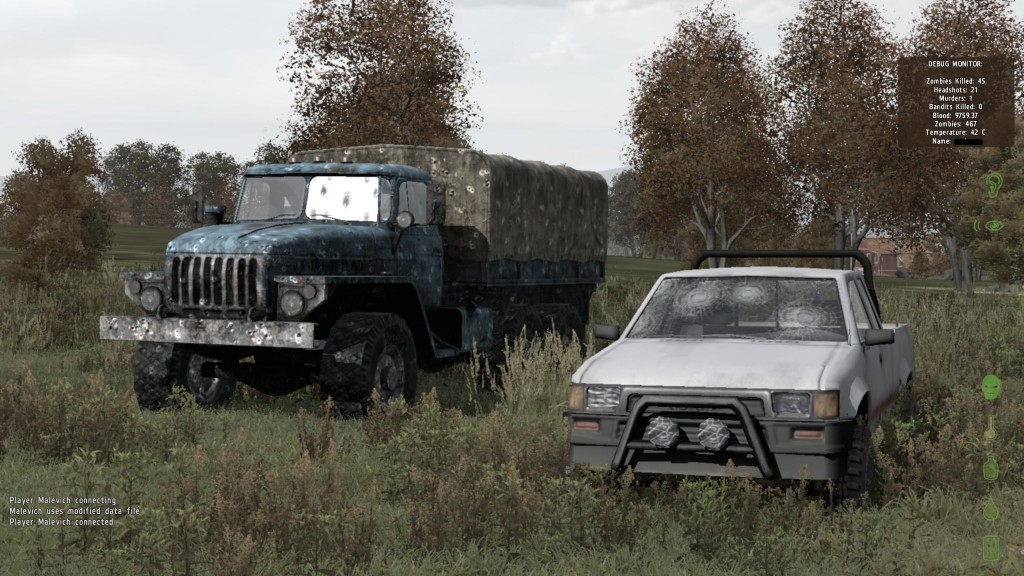
I remember this one time where I was driving along by myself in an off-road ute, following the lead car along a dirt road. The lead car cuts the corner of a bend up ahead, and I attempt to do the same. There’s a momentary second of lag, which I mistake for desync (packet loss), but the next thing I know, I’m out of the car and on the ground, bleeding out. I shout into comms that something bad has happened, and the lead car turns around, everyone jumps out, and tries to find me — made much easier by the billowing cloud of smoke rising into the air, originating from where the off-road was. As it turns out, I had hit a small bush or some other immovable object, been thrown out of the car, and was unconscious and quickly bleeding out. Luckily the rest of the group was nearby, otherwise I would have died there and then.
Whether you’re playing with friends or doing it lone wolf, there’s a lot to do in DayZ, even without any clear goals other than your continued survival. Perhaps it’s because there are no clear goals that means players have to make their own fun, and in that way, DayZ approaches the sandbox simulator we’ve always wanted.
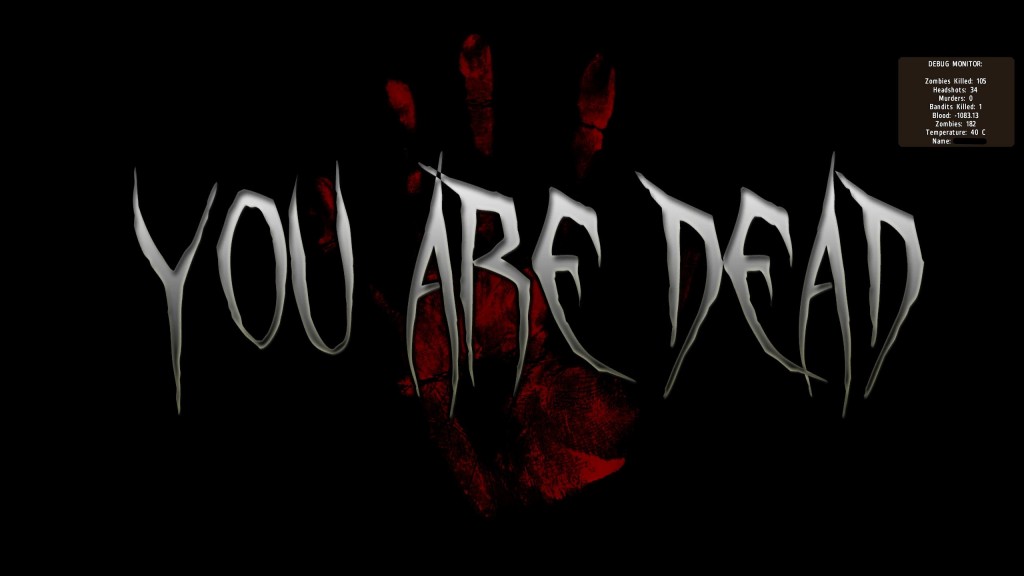
The catharsis of death in DayZ
There’s one aspect of DayZ that makes it such a compelling game to play, and it’s the fact that no matter what you do, you will die. Perhaps not all that strange when you think that DayZ is all about survival, but the fact is, you will die. Many, many times, and often through no fault of your own; you might step into the flight path of a stray bullet, for example, killing you in one shot (been there, done that), or you might come across hostile players who shoot first, and ask questions later. The fact is, you will die, and you will die a lot.
But that’s just the thing: death is perhaps one of the best aspects of DayZ. More accurately, death is simultaneously the best and worst thing that can happen to you as a player.
Worst because it means you’ll lose all your hard-earned gear, your zombie kill stats, your backpack, all of it. All that time you spent scavaging for the essentials to survive in the wilderness — hatchet, matches, map, compass, watch, and so on — all gone. You’re instantly back to square one, and you’ve lost all your gear in the process. If you’re the type of person who gets attached to their gear — don’t, because in DayZ, that only leads to tears.
At the same time, death is perhaps the best thing that can happen to you as a player in DayZ. It means you’ll lose all your gear, but unless you had really rare stuff, most of what you had is replaceable. You’ll always find another set of camo clothing, or that shiny new sniper rifle you liked. And we haven’t even gotten to the bset part: with your new character, there’s untold possibilities about what you could do. Think about it: the chance to show that headshot statistic who’s boss. With a new character, you’ve got nothing to lose, so you’ll take more risks in order for a bigger payoff: you’ll get the chance to explore a city you might never have done so when you were all geared up, and you might even run around like some kind of axe murderer, freaking people out over direct chat.
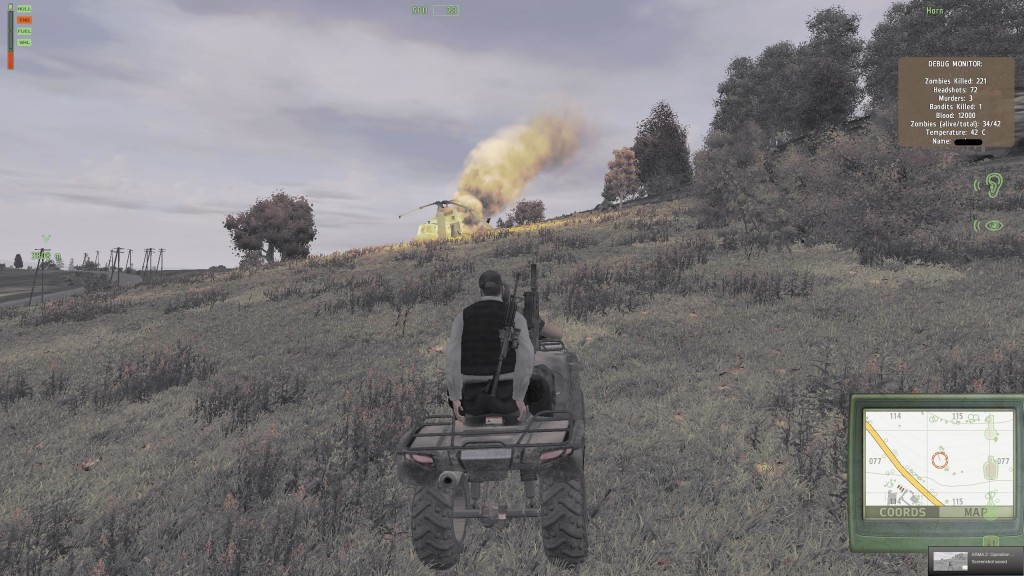
I remember this one time when I died, and I was relatively upset that I started back at the bean coast without any gear. I began to make my way back up north to where my body was, and on the way, I managed to find a crashed heli (think randomly-placed ultra-rare gear spawn) and a fully functioning ATV with gear inside. I never would have found those items had I not died minutes ago, so in that case, death was one of the best things that could have possibly happened.
Death is almost refreshing, in a way. As your character survives for more and more days, you either begin to take less risks, or don’t play at all. But when you die, you’re free from the burden of surviving, and don’t have anything to worry about. Death frees you from all the pressure of survival, and means you can run like a lunatic in Cherno or Elektro. You’ve got nothing to lose, so why not just run around naked for a little while? There’s always time to play seriously later on.
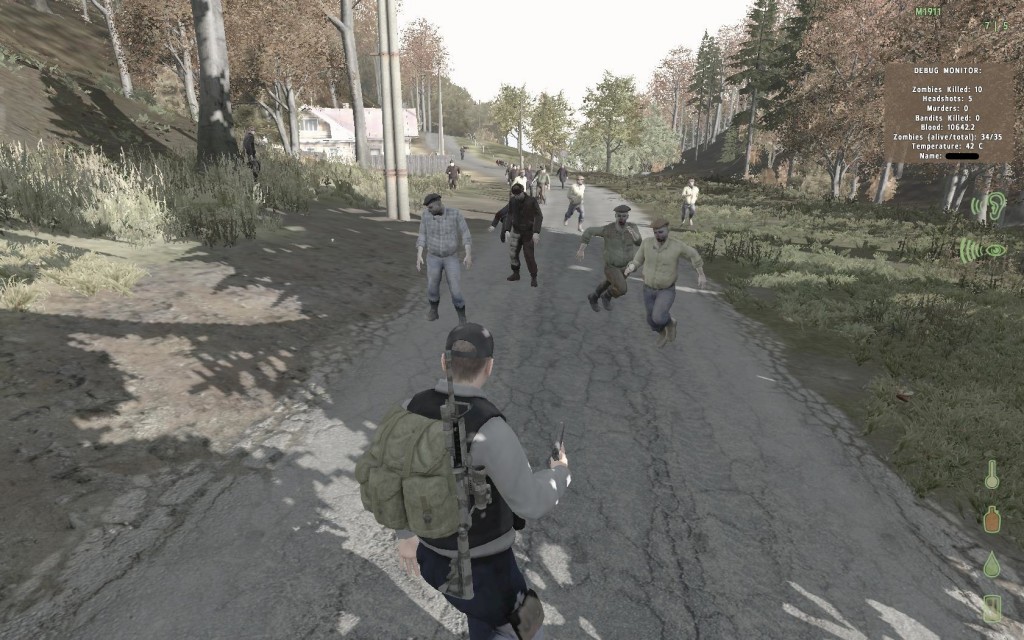
Just plain fun
Taking all the above into account, there’s one thing which makes DayZ just so much fun to play. You’ll treat it seriously when you’re surviving by yourself, you’ll have a bit of fun just after you’ve died, and you’ll treat gear as if your life depended on it.
You’ll freak out when someone is around you shouting strange things into direct voice chat.
You might even descend to the point where you’ll shoot someone else just for their backpack.
But one things’s for sure: you’ll have a hell of a lot of fun playing it.
